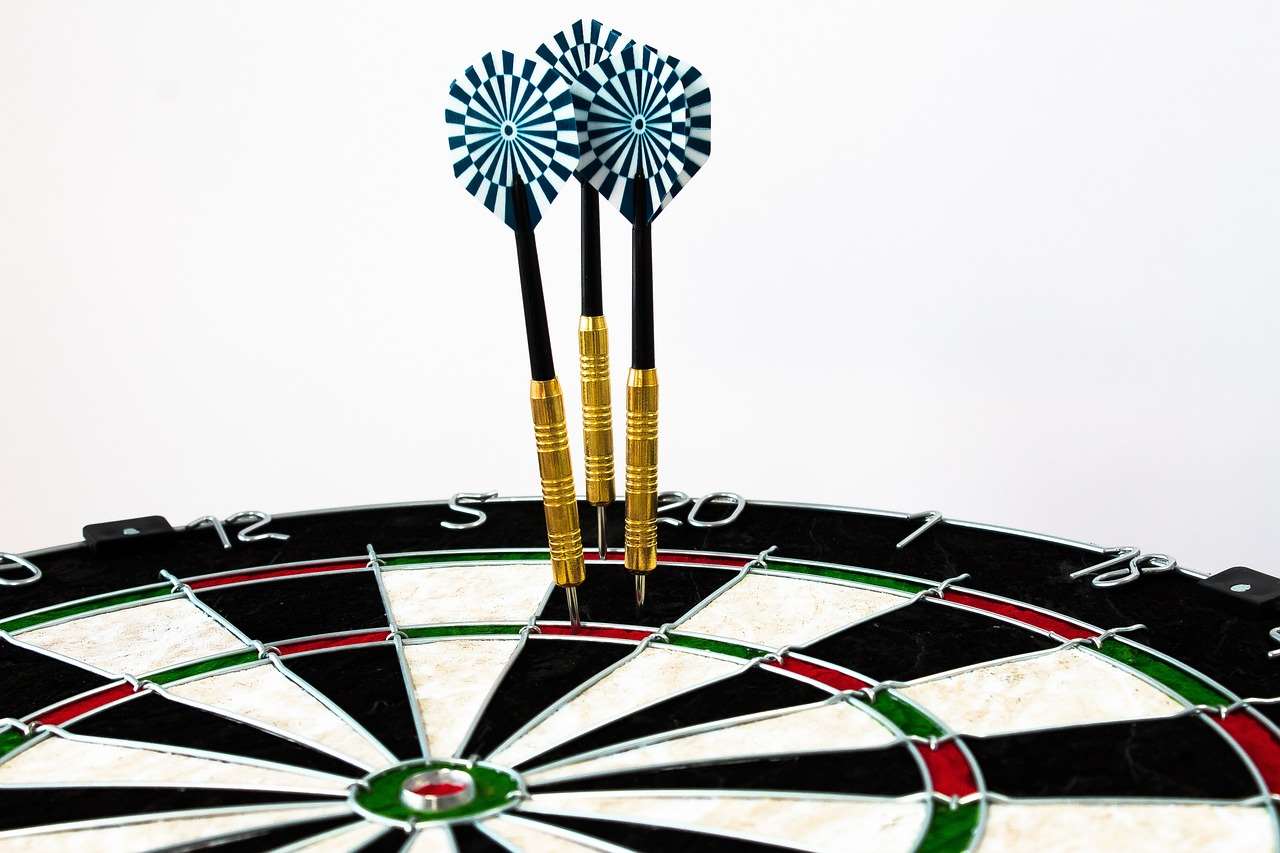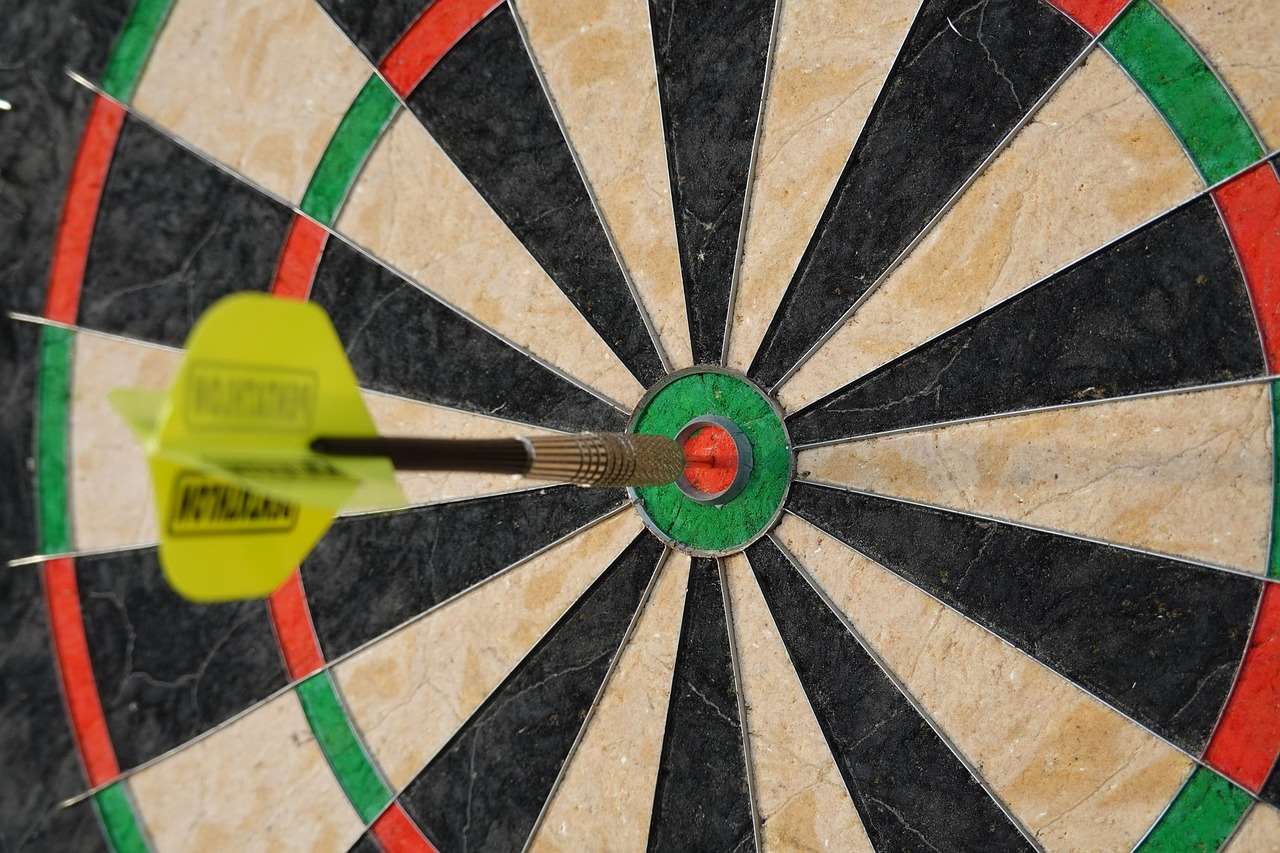Qualifying School, or **q-school darts**, is the annual proving ground where aspiring and seasoned dart players battle for a coveted Professional Darts Corporation (PDC) Tour Card, essentially a golden ticket to the big leagues. This article dives into the intricacies of **q-school darts**, explaining the format, the challenges, and how players can improve their chances of success.
⚠️ Still Using Pen & Paper (or a Chalkboard)?! ⚠️
Step into the future! The Dart Counter App handles all the scoring, suggests checkouts, and tracks your stats automatically. It's easier than you think!
Try the Smart Dart Counter App FREE!Ready for an upgrade? Click above!
What is Q-School Darts?
**Q-School darts** is the annual qualifying competition run by the PDC, offering a direct pathway to professional darts. It’s a high-stakes, pressure-cooker environment where players from all over the world compete for a limited number of **PDC Tour Cards**. These cards grant players entry into all Players Championship events and qualifying events for major televised tournaments for a period of two years. Think of it as the Hunger Games, but with tungsten.

The Significance of a PDC Tour Card
Securing a **PDC Tour Card** is paramount for any dart player serious about making a living from the sport. Without it, access to lucrative tournaments is severely limited. A Tour Card holder gains:
- Entry into all Players Championship events (floor tournaments with significant prize money).
- Entry into qualifying events for major televised tournaments like the World Championship, World Matchplay, and Grand Slam of Darts.
- The opportunity to earn ranking points, which determine qualification for other prestigious events.
Essentially, a Tour Card provides the platform to compete regularly, earn a living, and climb the world rankings. It is a vital step for aspiring professionals and returning pros alike. Understanding Checkout Darts is vital to winning these matches.
Q-School Darts: The Format Explained
The format of **q-school darts** is designed to be grueling and test a player’s consistency and mental fortitude. It typically consists of two stages, each offering different routes to securing a Tour Card.
First Stage
The First Stage is open to all players who meet the entry requirements. It’s usually split into multiple days, and players are divided into groups. The format involves playing a series of matches, typically best-of-9 legs, in a round-robin or knockout format depending on the number of entrants. The number of players advancing from each day of the First Stage to the Final Stage is predetermined. Players also earn ranking points throughout the First Stage. These points are used to create a Q-School Order of Merit.
Final Stage
The Final Stage features players who qualified directly from the First Stage, along with players who didn’t qualify but earned sufficient ranking points in the First Stage to advance via the Q-School Order of Merit. Furthermore, players ranked in the top 64 of the PDC Order of Merit who did not retain their Tour Cards automatically qualify for the Final Stage. The Final Stage runs over several days, and the format is typically a straight knockout, best-of-11 legs. The number of Tour Cards awarded each day of the Final Stage is announced beforehand. In addition to Tour Cards awarded daily, players also continue to accumulate Q-School Order of Merit points throughout the Final Stage. These points are crucial, as a certain number of Tour Cards are awarded to the highest-ranked players on the final Q-School Order of Merit who haven’t already secured one.

Tour Card Allocation
Tour Cards are awarded in two ways:
- Daily Winners: The winners of each day’s tournament in the Final Stage automatically receive a Tour Card.
- Q-School Order of Merit: A certain number of Tour Cards are awarded to the highest-ranked players on the Q-School Order of Merit at the end of the Final Stage. These players will not have already won a tour card through the daily tournaments.
This dual system ensures that both consistent performers and those who have a stellar day have an opportunity to earn a Tour Card. It also rewards players who perform well across the entire **q-school darts** event, even if they don’t win a daily tournament.
Strategies for Success in Q-School Darts
Navigating **q-school darts** requires more than just skill; it demands a well-thought-out strategy and unwavering mental resilience. Here are some key strategies to improve your chances of success:
Preparation is Key
Thorough preparation is non-negotiable. This includes:
- Extensive Practice: Dedicate significant time to practicing your throwing technique, checkout combinations, and scoring. Focus on consistency and accuracy.
- Mental Training: Q-School is a pressure-cooker environment. Practice visualization, meditation, or other mental techniques to stay calm and focused under pressure.
- Physical Fitness: Darts may seem like a sedentary sport, but stamina is important, especially during multi-day events. Maintain a reasonable level of physical fitness to avoid fatigue.
- Equipment Preparation: Ensure your darts are in top condition, and bring spare flights, shafts, and points. Have your equipment dialed in so that you aren’t thinking about it while playing.

In-Match Strategies
Effective in-match strategies can make the difference between winning and losing:
- Consistent Routine: Develop a pre-throw routine and stick to it consistently. This helps to maintain focus and rhythm.
- Strategic Scoring: Prioritize scoring effectively to set up checkout opportunities. Don’t always go for the highest score; focus on leaving yourself a manageable checkout.
- Checkout Management: Master common checkout combinations and practice them until they become second nature. Learn to adapt your checkout strategy based on your opponent’s score and throwing position.
- Adaptability: Be prepared to adjust your game plan based on the flow of the match. If something isn’t working, don’t be afraid to try a different approach.
Mental Fortitude
Mental strength is arguably the most crucial factor in **q-school darts**. The pressure and intensity can be overwhelming, but a strong mental game can help you stay composed and perform your best. Here’s how to cultivate mental fortitude:
- Positive Self-Talk: Replace negative thoughts with positive affirmations. Believe in your abilities and focus on your strengths.
- Resilience: Don’t dwell on mistakes. Learn from them and move on. Resilience is the ability to bounce back from setbacks and maintain a positive attitude.
- Focus on the Process: Instead of focusing on the outcome (winning a Tour Card), focus on the process (throwing each dart to the best of your ability). This helps to reduce pressure and improve performance.
- Manage Expectations: Be realistic about your chances. Q-School is a highly competitive event, and not everyone will succeed. Focus on improving your game and learning from the experience.
Related Keywords and Concepts
Understanding the broader context of professional darts can also enhance your appreciation and preparation for **q-school darts**. Some related keywords and concepts include:
- PDC Rankings: Familiarize yourself with how the PDC rankings work and how Tour Card holders earn ranking points.
- Challenge Tour: The PDC Challenge Tour is a second-tier tour that provides opportunities for players without Tour Cards to compete and earn prize money.
- Development Tour: The PDC Development Tour is designed for young players (aged 16-23) to develop their skills and gain experience.
- PDC Europe: PDC Europe organizes events primarily in continental Europe, providing opportunities for players outside of the UK to compete.
- World Darts Championship: The pinnacle of professional darts, and a major goal for any player with a **PDC Tour Card**.
- Darts Score: Understanding how points are calculated. Some use Darts Score apps for quicker calculation.

The Financial Aspect of Q-School Darts
Participating in **q-school darts** involves significant financial investment. Players need to consider entry fees, travel expenses, accommodation costs, and practice equipment. It’s essential to have a realistic budget and plan for these expenses. Some players seek sponsorship to help offset the costs, while others rely on personal savings or financial support from family and friends. It’s important to consider the long-term financial implications of pursuing a career in professional darts, including the potential for earning a living and the associated expenses. Make sure you have the right Dart New Set for optimum performance. You can also use a Dart game scoring app to assist with practice.
The Future of Q-School Darts
The format and structure of **q-school darts** have evolved over the years, and it’s likely to continue to adapt in the future. The PDC is constantly seeking ways to improve the fairness and accessibility of the qualifying process, ensuring that the most deserving players have the opportunity to earn a Tour Card. As the popularity of darts continues to grow globally, the demand for Tour Cards is likely to increase, making Q-School even more competitive. The use of technology and data analytics is also likely to play a more significant role in the future of **q-school darts**, with players using data to analyze their performance and identify areas for improvement.

Conclusion
**Q-School darts** represents a challenging but potentially rewarding path to professional darts. Success requires a combination of exceptional skill, unwavering mental fortitude, and meticulous preparation. By understanding the format, implementing effective strategies, and cultivating a strong mental game, aspiring dart players can significantly improve their chances of earning a coveted PDC Tour Card and realizing their dreams of competing on the world stage. Remember that Q-School is not the end all be all, there is always next year or one of the alternate tour options available. As you hone your craft, consider how How Darts Fly to better understand your throw. Now, go out there, practice hard, and chase your darts dreams!
Hi, I’m Dieter, and I created Dartcounter (Dartcounterapp.com). My motivation wasn’t being a darts expert – quite the opposite! When I first started playing, I loved the game but found keeping accurate scores and tracking stats difficult and distracting.
I figured I couldn’t be the only one struggling with this. So, I decided to build a solution: an easy-to-use application that everyone, no matter their experience level, could use to manage scoring effortlessly.
My goal for Dartcounter was simple: let the app handle the numbers – the scoring, the averages, the stats, even checkout suggestions – so players could focus purely on their throw and enjoying the game. It began as a way to solve my own beginner’s problem, and I’m thrilled it has grown into a helpful tool for the wider darts community.